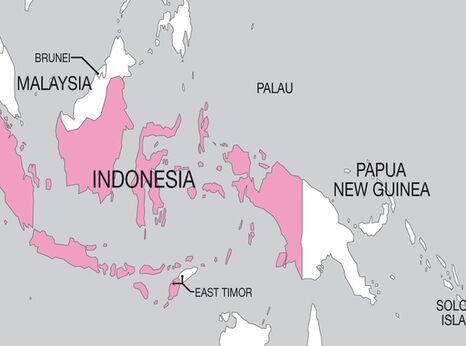Indonesia: Environmentalists at risk of imprisonment

Syamsul Bahri and Samsir were detained on 10 February 2021 and spent 14 days in prison until they were released on bail by the police on 24 February. The Stabat District Court in North Sumatra started the trial on 29 March and handed down the ruling on 31 May, declaring Syamsul Bahri and Samsir guilty of assault. The two were given two months prison sentence with four months’ probation that exempted them from being jailed. The sentence is lighter than the prosecutors’ initial demand of six months imprisonment. Their family and lawyers initially accepted the ruling but decided to file a counter-appeal after the prosecutors appealed the verdict.
In late 2017, the government granted the Nipah Farmer community the right to manage a 242-hectare land in Kwala Serapuh Village, North Sumatra province, for sustainable use under a social forestry permit. The community has since then been working to rehabilitate mangrove forests in this area. The community is protesting the operation of a palm oil company that owns a plantation on land the community claims the right to manage.
The accusation filed against Syamsul Bahri and Samsir dates to a case in December 2020 while members of the Nipah Farmer community were working on an environmental rehabilitation project on the land they manage under the social forestry scheme. According to witness testimonies collected by local NGOs, including WALHI North Sumatra, LBH Medan, and Srikandi Lestari, two people arrived at the site on 18 December and took pictures of their activities.
Syamsul Bahri, the community’s chairman, questioned the two individuals on their intention of visiting the area. Afterwards, one of the individuals walked away and called his friend saying that he was “being beaten up” in a loud voice so that others could hear, before jumping into the river. The Nipah Famer community quickly rescued him with a boat and took him to safety before asking him to clarify the statement he had previously made in the call. The individual then said that he was not being beaten up by any of the community members and his statement was recorded in a video by a member of the community. The man’s friend came to pick him up not long after.
On 8 February 2021, Syamsul Bahri and Samsir received a letter of summons by the Tanjung Pura Police to appear for questioning on 10 February as suspects regarding allegations brought by one of the men who had filed a report to the police stating that Syamsul and other farmers assaulted him on 18 December 2020. The two were charged under Article 170 (1) of the Criminal Code on group violence. The legal process raised questions since Syamsul and Samsir had never been questioned as witnesses or asked to comment on the report before.
NGOs who advocate for the case believe the allegations to be based on false accusations against Syamsul Bahri and Samsir and to be a form of criminalization aimed to stifle the community’s work in conserving the mangrove forests and claiming their rights linked to access to land. According to their lawyers, there were no reliable evidence presented during the trial that clearly demonstrates their involvement in any criminal activity, in this case the assault allegations, which witnesses had been fabricated by the man who reported them.
Environmental human rights defenders in Indonesia are increasingly harassed and criminalized when state and economic actors perceive their activities as a hindrance to the implementation of development policies. One of the most notable cases of criminalization occurred in 2017 with the sentencing of environmental activist Heri Budiawan, also known as Budi Pego, to four years in prison for spreading communism in relation to his work to protest gold mining activities in Tumpang Pitu, Banyuwangi, East Java province.
From January to June 2021, Amnesty International recorded the arrest, attack and intimidation of at least 107 human rights defenders in Indonesia, including environmental activists who defended their rights to access to land and a healthy environment.